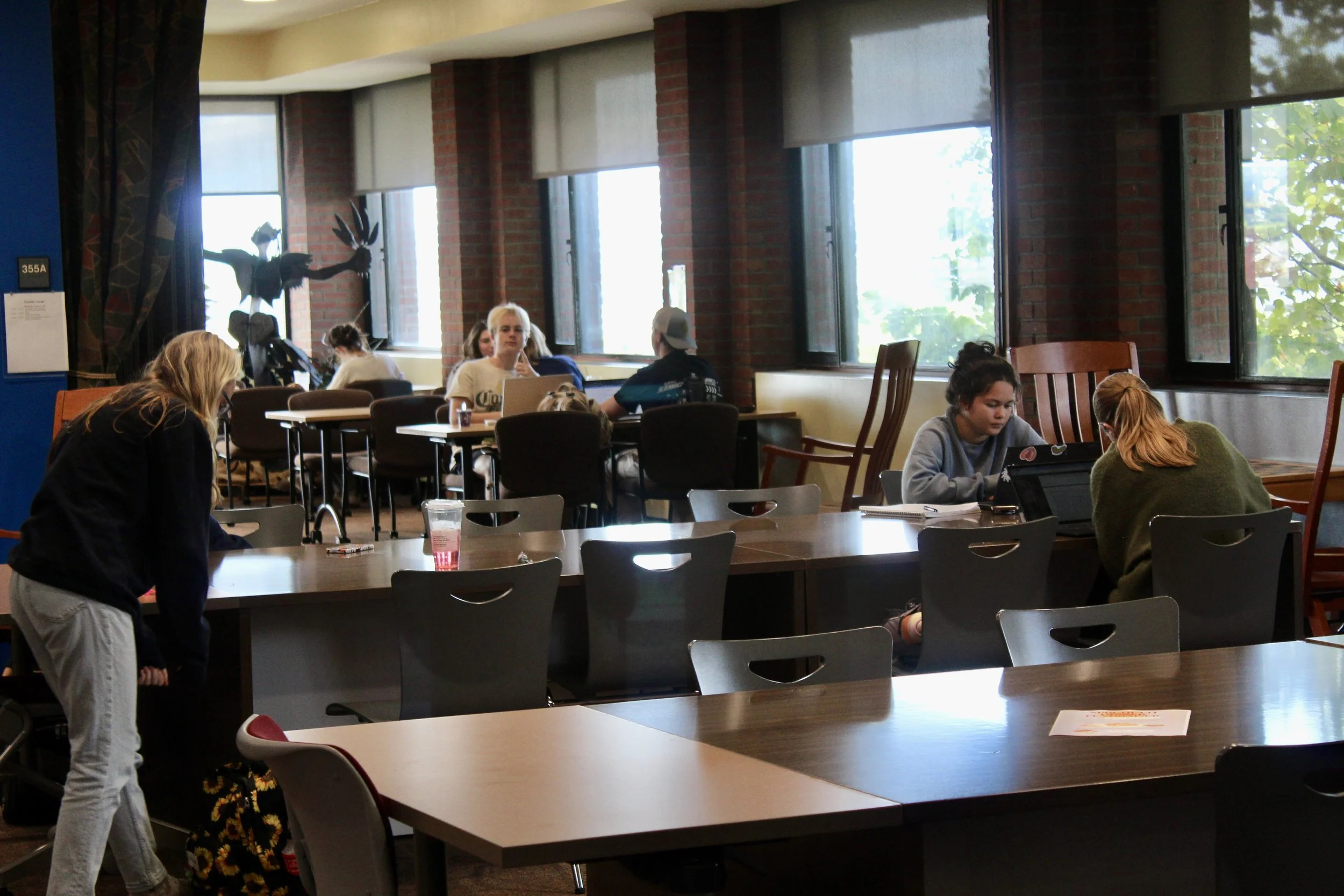Unconventional ways to study better
Photo courtesy of Photo Editor Faith Zatlukal
Geneseo students studying in the MacVittie Union, a common hub where students meet with fellow classmates and friends to study together or work on group projects.
With the upcoming midterm season, many of us students are preparing for afternoons and very late nights/early mornings filled to the brim with frenzied reading, careful note-taking, and even a flashcard or two. To try and lessen the blow that this collegiate ritual can take on students’ mental and physical well-being, I bring to you some tried and true, as well as more unconventional methods for studying.
Before I properly start, I suppose I should say this: effective studying and learning starts well before the big test/project/essay. As a seasoned procrastinator and crammer, I hate to say it, but the best method for ensuring what is studied sticks is to begin early. Making sure you are following assigned reading and/or homework and taking helpful, brief notes as these things are being assigned is the best way to keep the midterm season from sneaking up on you and becoming overwhelmingly stressful. Self-care practices can also help ensure your brain operates at its maximum functionality. Your body being hungry, thirsty, sleepy, or feeling unhygienic can lead to the brain becoming distracted, preoccupied, or otherwise disengaged with the material you are trying to work on.
From there, my first piece of unconventional study advice is to make sure you have the opportunity to sleep or nap after studying but before the assessment. Studies have shown that post-learning sleep helps with memory consolidation, or it helps with the brain’s ability to sort through, categorize, and remember information that has been absorbed throughout the day.
This means that getting a good cycle of rapid eye movement (REM) sleep after a good study session helps you feel better physically and avoid the preoccupation with sleep a tired brain often has and helps your brain remember the information you spent all that time absorbing. How beautiful is that! A good night of sleep can be a studying tool that makes you a more effective learner but also solidifies the information you have already worked on learning. When planning a good ol’ study session, make sure you plan accordingly; leave time after you have your nose in the books to get some proper shut-eye!
Another way to get your brain working on the next level is to get active! Breaks while studying are a practice many learning researchers encourage. Taking breaks can help the brain have time to process and stop individuals from becoming overwhelmed with all the material being covered at one time. Are there methods of break-taking that are better than others, though? Is spending 10 minutes on TikTok just as good of a break choice as taking 10 to have a glass of water or a quick snack? To that, studies say no.
Researchers from BMC Public Health claim physical activity is the best use of this break time. Through their study, it was found that the decrease in physical activity that occurred as a result of COVID-19, but more generally from many students transitioning from high school, where more students are typically active, to college, where fewer students are physically active, has led to decreased academic performance. It is thought that this phenomenon of exercise helping with learning is a byproduct of the dopamine release and decrease of cortisol levels associated with exercise. This means—get moving!
Have you sat at a desk for the last four hours, stiff in the back from your hunched, stationary posture? Well then, take a quick jog, do some jumping jacks, engage in some light stretching or a quick yoga routine—your grades will thank you for it.
Well, then, I wish you the best as we move into this busy and demanding time of year. Remember to take care of yourself, and your grades will thank you for it later!

